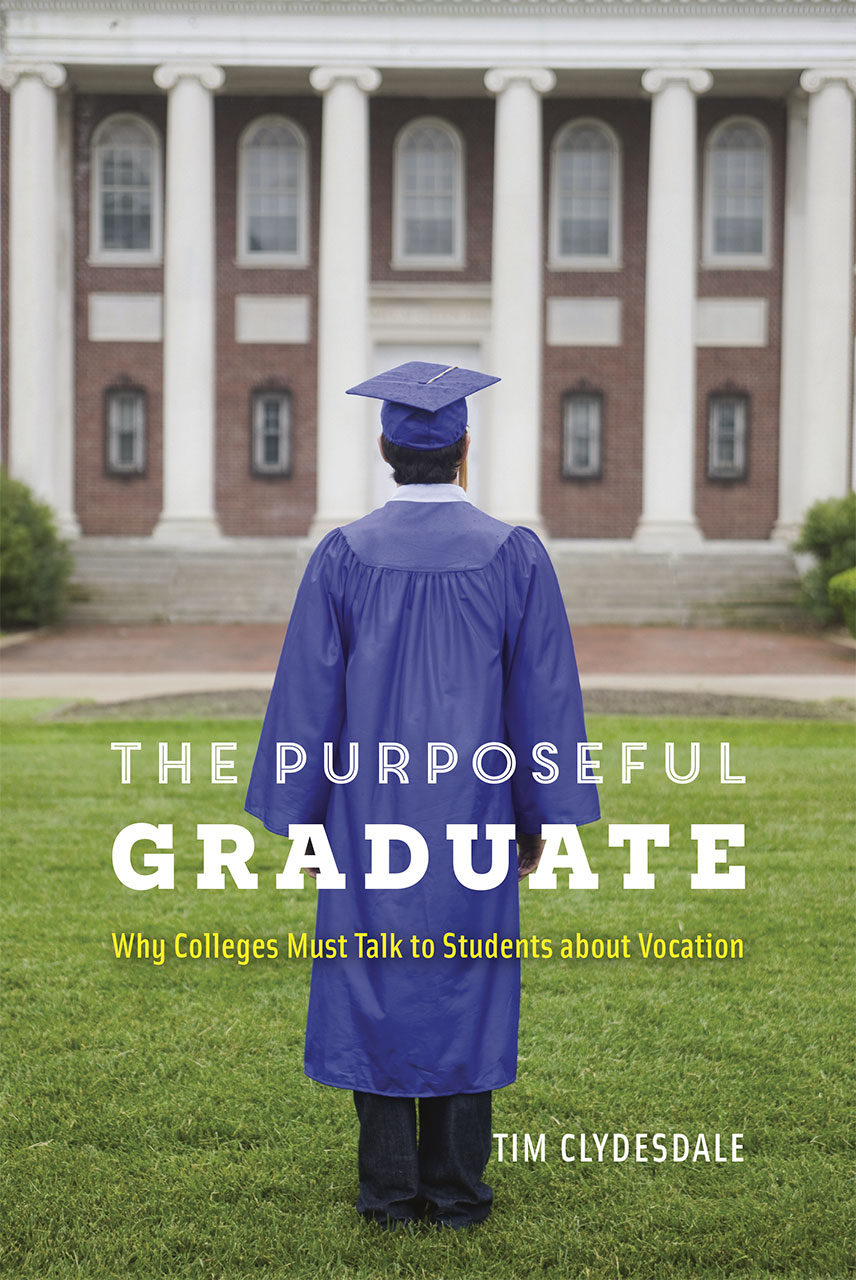
Colleen Flaherty of Inside Higher Ed recently interviewed Tim Clydesdale, professor of sociology at the College of New Jersey and author of the 2007 book The First Year Out: Understanding American Teens After High School (University of Chicago Press). His newest book is The Purposeful Graduate: Why Colleges Must Talk to Students About Vocation (University of Chicago Press).
Clydesdale studied programs at various religiously-affiliated colleges and universities which received grants from the Lilly Endownment to help students explore questions of vocation and meaning. Full disclosure: I work in an office at Boston College–the Division of University Mission and Ministry— that began because of seed money from one of these grants. Like many other of the 88 institutions that received grants, Boston College went on to fully fund the programs initiated by the grants.
Clydesdale focuses on how the Lilly grants opened new conversations about student formation and vocational discernment in the context of higher education.
What the national conversation about the value of college is missing is the very purpose of college itself: to educate and graduate thoughtful, purposeful and globally aware citizen leaders. We are not job training centers, and even our professional schools — which have the closest relationship to the workforce — seek to prepare leaders for tomorrow’s professions, not applicants for this month’s job openings.
The Lilly-funded programs opened up opportunities for students to consider questions beyond the immediate concerns for grades and jobs: questions about meaning, purpose, service, and faith.
The primacy of daily life management helps most teens successfully navigate the first year after high school, but at the cost of neglecting deeper identities and the wider world. … What my research for The Purposeful Graduate revealed was an important opening for engagement of deeper issues that came in the second year after high school….
Once settled into the college student role, and anchored by the relative stability of enrollment at a four-year college, many sophomore and junior students will ask bigger questions about themselves and the world.
We know from other studies that there is a gross disparity between students’ desire for exploring questions of life’s meaning and the general (un)willingness of professors to engage those questions.
Every student, therefore, should be invited to reflect on and explore ideas of purpose and calling, to do so among supportive peers, with service opportunities to tangibly explore their emerging interests, and with faculty and staff mentors who share a desire to live meaningfully and compassionately.
Yet what Clydesdale has found is that these programs benefit both students and faculty.
The effects on faculty and staff included revitalization of careers, more rewarding teaching experiences, greater appreciation for college or university mission, new scholarly research programs, more satisfying mentoring conversations with students and broader connections to the campus community, including more friendships across the faculty/staff divide.
We’ve seen these effects at Boston College. Some of the many exciting initiatives that have arisen from our interest in vocational discernment include the Intersections program, which draws together faculty to address questions about the mission of our institution. More recently, the initiative with which I have been associated, the Boston College Roundtable, has invited scholars across disciplines and institutions to reflect on the broad mission of Catholic higher education. We’ve developed a Center for Student Formation which offers students many opportunities to develop habits of reflective living, in addition to our long-established Campus Ministry program, which invites students into deeper immersion in Catholic liturgical and spiritual practices.
Clydesdale puts his finger on something important in the nature of the Lilly grants: namely, that they did not impose any external force on the dynamics of those institutions which received the grants: “campuses designed programs themselves that fit with their institutional histories and organizational cultures; these were not top-down, external programs that campuses had to implement.” In the case of Boston College, we were able to draw from centuries of reflection on the spiritual life, and in particular an Ignatian theology of discernment, to formulate a strategic answer to our question “how might we invite members of our university community to participate more fully in our mission?”
Our efforts are still in their infancy. What is significant from an historical perspective is the fact that there is no template for a fully modern Catholic university: that is, a university governed by a mostly lay board of trustees, committed to advancing the mission of Christ and the Church through education in the context of modernity (or postmodernity) and all the complexity represented in those terms. One important dimension of (post-)modernity, though, involves the fracturing of Western identity, and the consequent impact on societies and social mores. Young peoples’ thirst for meaning and direction–vocation, understood in Catholic tradition as a call from God rooted in receiving who God has made me to be–is one important manifestation of a particular challenge that Catholic universities are well-poised to address. Our own stories–stories of prophets and saints, thinkers and activists, entrepreneurs and parents, priests and vowed religious–are stories of listening carefully to God and building lives of grace. Ours is the great blessing of being in positions to share these gifts with peers and colleagues, students and their families, donors and friends. We can renew the face of the earth.











